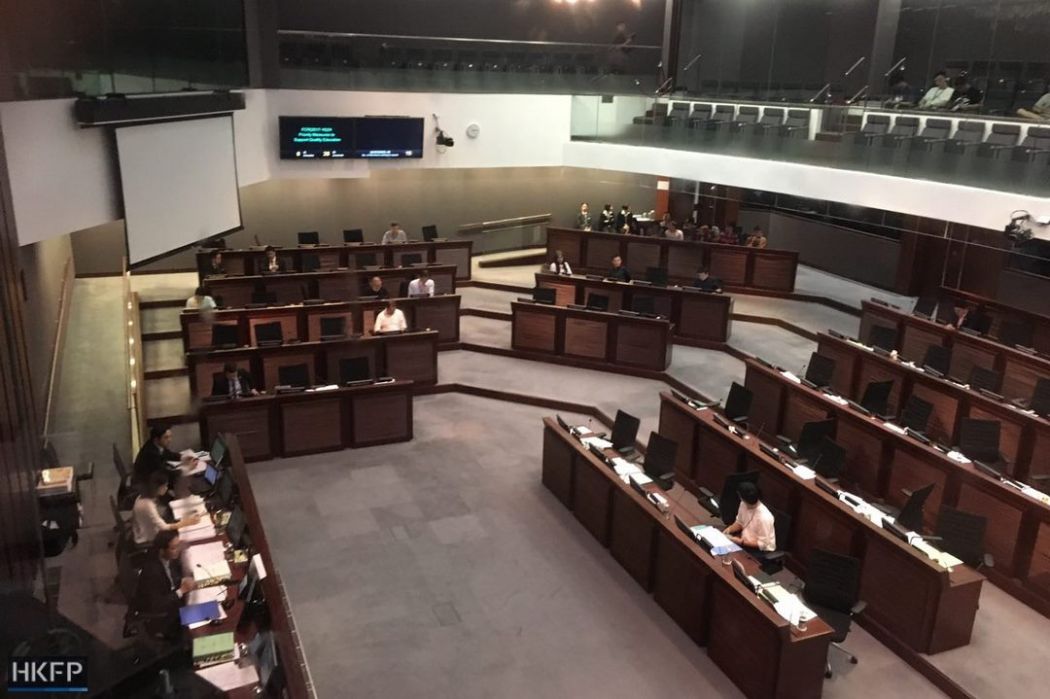The pro-Beijing chairperson of the legislative committee approving Hong Kong government funding has suggested taking away lawmakers’ power to raise unprepared motions during debates.
Chan Kin-por’s new proposal would curb the ability of the pro-democracy camp to filibuster controversial government funding items to a greater extent than his proposal last week, when he suggested limiting each lawmaker to raising only one unprepared motion in each Finance Committee debate.

Chan’s proposal to amend meeting procedures require approval from a majority of legislators in both the geographical and functional constituencies of the Legislative Council. However, the pro-Beijing camp now holds a majority of seats in both constituencies as a result of the High Court’s disqualification of six opposition lawmakers.
‘Not legally binding’
Speaking to reporters at the Legislative Council on Thursday, Chan cast doubt on the usefulness of temporary motions – motions that have not been submitted to the legislature for review beforehand – because they are not legally binding.
“The government doesn’t have to do anything [in response to the motions],” he said. “So the question is: are they really meaningful at all?”
Chan denied that he was attempting to take advantage of the smaller number of opposition legislators to push through his proposal. He said he would raise his suggestion with the pro-democracy camp when the legislature reconvenes in October.
“My responsibility is to show the public that I’m not pressuring people into silence, but am trying to appropriately improve the legislative meeting process so that we are more efficient,” he said.

“The ultimate beneficiary of this [proposal] would be the public,” he added.
Speaking to RTHK, pro-democracy lawmaker Dennis Kwok criticised Chan’s proposal: “If he is looking to take advantage of the fact that we have fewer people and are missing several colleagues in October to change the rules of procedure, then this amounts to declaring war on the pro-democracy camp.”
Last week, Chan also suggested that lawmakers expelled for misbehaviour during meetings should be banned from returning to the chamber for an entire day. Currently, expelled lawmakers can return for the next meeting session – each session usually lasts for two hours.
